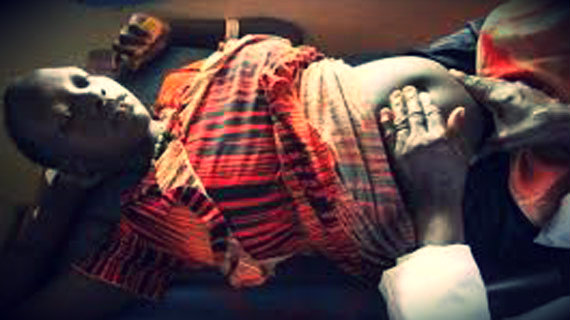
AN estimated 3 000 women die every year in Zimbabwe while giving birth and despite the reasons for this unsustainable death rate being known, nothing has been done to stem the tide.
Southern Eye Editorial
Successive governments have failed to give enough funding to the Health and Child Welfare ministry while prioritising ministries such as Defence.
According to various sources, maternal mortality in Zimbabwe worsened by 28% from 1990 to 2010 at a time when the country was expected to be inching closer to the Millennium Development Goals by 2015, which include achieving zero maternal deaths.
This week we carried two reports with one illustrating how pregnant women were left to die in rural Midlands and another on how well-wishers have come to the rescue of Nkulumane Clinic in Bulawayo.
Nkulumane Clinic has the highest deliveries among the city council’s clinics and on Monday it was a recipient of medical supplies and stationery donated by the Rotary Path to Health.
On Monday, we had reported that villagers, home-based care givers and medical staff in Zhombe Ntabeni South, some 90km from Kwekwe, said women were still dying on their way to hospitals or at home while attempting to bring in new life.
In February, a woman reportedly died while she was being ferried in a scotchcart from Ntabeni Clinic to Zhombe Mission Hospital in the dead of the night, simply because there is no electricity at the clinic and nurses could, therefore, not help her.
- Chamisa under fire over US$120K donation
- Mavhunga puts DeMbare into Chibuku quarterfinals
- Pension funds bet on Cabora Bassa oilfields
- Councils defy govt fire tender directive
Keep Reading
Such stories are not only peculiar to Zhombe, but to most rural health centres throughout the country where pregnant women are forced to bring their own linen and candles for deliveries.
Speaking at the handover of the equipment donated by the Rotarians, Bulawayo mayor Thaba Moyo noted that while the Nkulumane Clinic continued to deliver a high number of babies each month, the city’s maternity units faced challenges in terms of resources.
The two sad stories will leave any reader asking what the government is doing to reduce these high and unnecessary deaths.
The Rotarians must be applauded for the intervention which must inspire other philanthropists to donate to more institutions operating without appropriate equipment and electricity.
It is clear that quality care in maternal health services seems to be the missing link in Zimbabwe.
A number of government leaders, including Deputy Prime Minister Thokozani Khupe, have been speechifying about the need to improve martenal health care to ensure women don’t die while giving birth, but there is need to translate the rhetoric to action.










